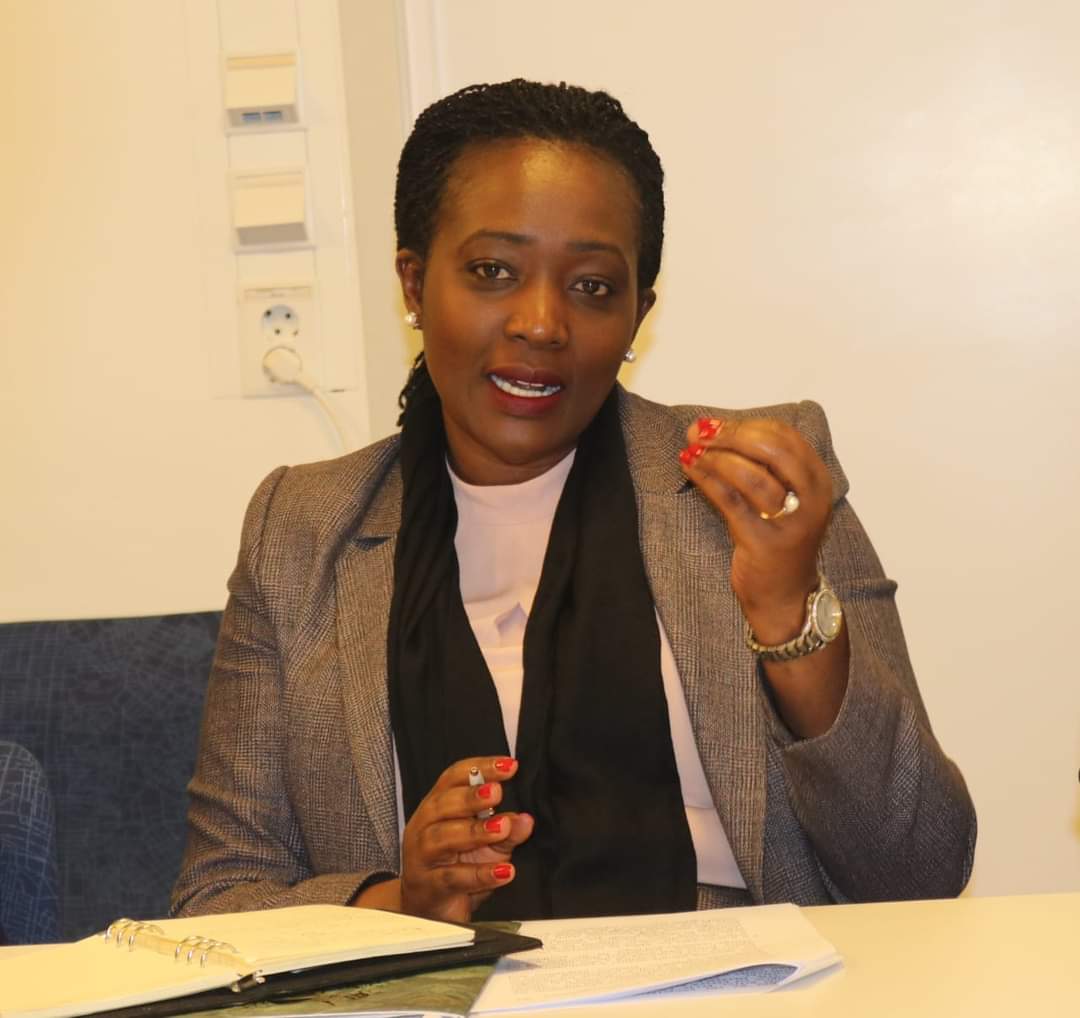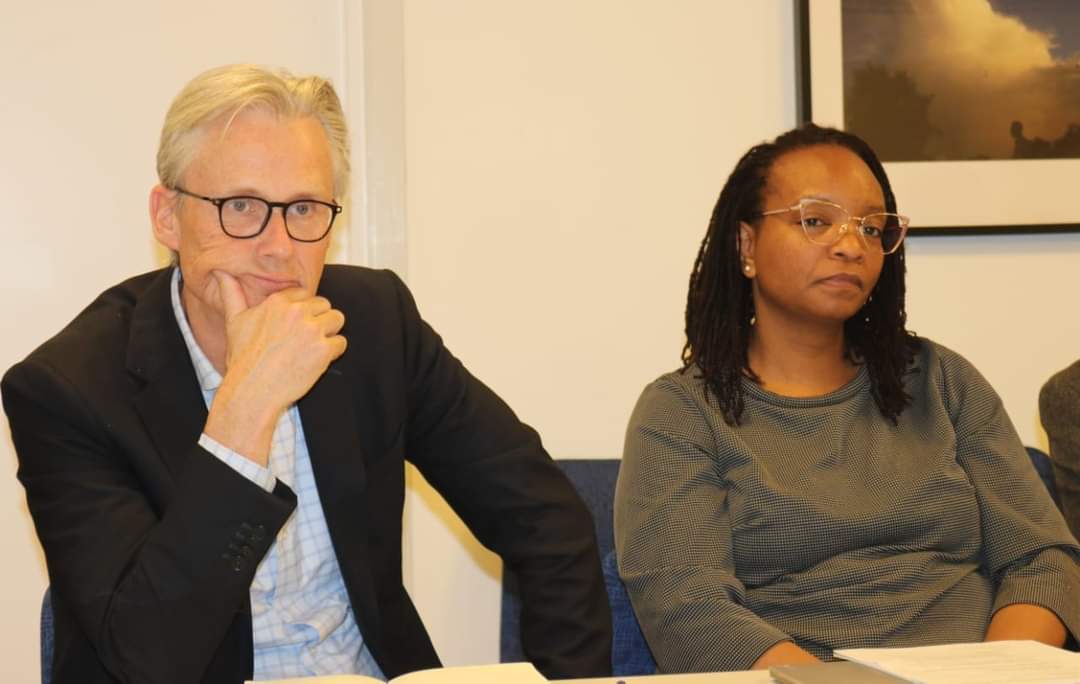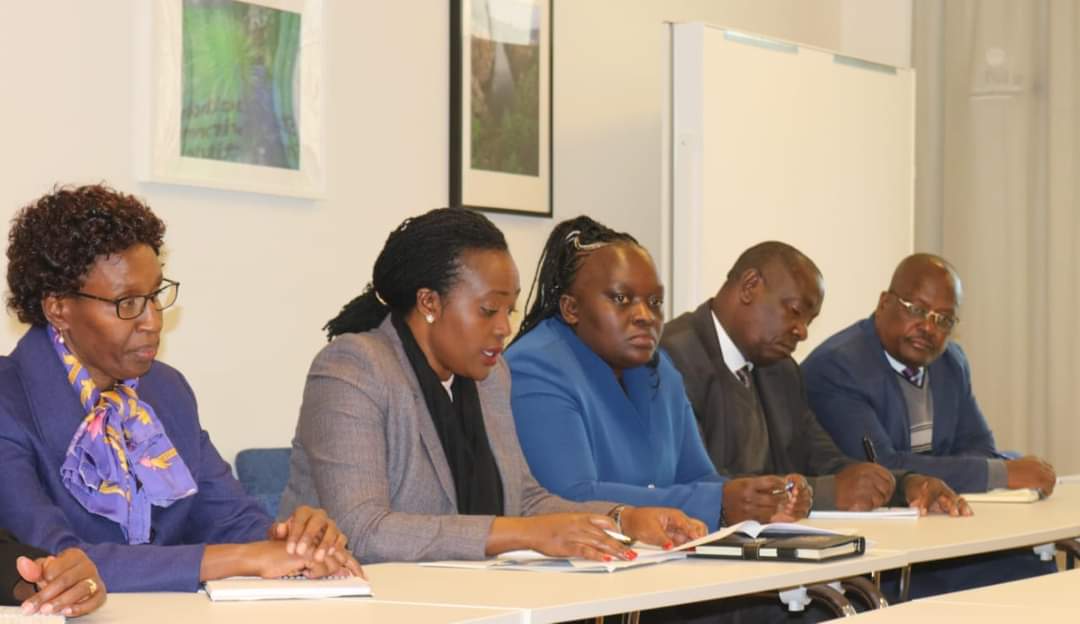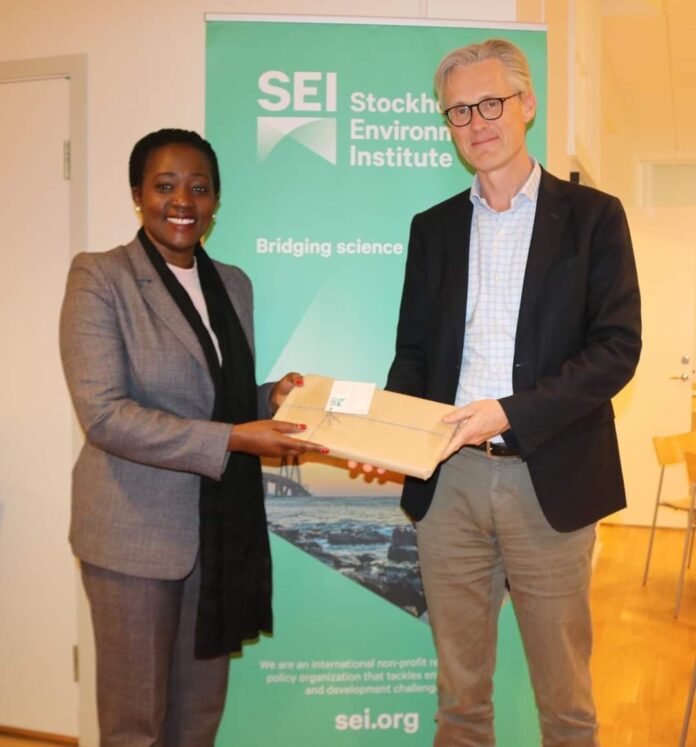By Winnie Kamau
Nairobi, Kenya: Kenya’s bid to raise the forest tree cover from the current state of 12.2% to 30% by 2032 is still on course with the 15 billion trees campaign. Kenya is looking at Sweden with her 68.7 percent forest cover as a case study, said the Cabinet Secretary (CS), Ministry of Environment, Climate Change and Forestry.
Tuya is currently on a European tour looking for support from European partners in the upcoming inaugural African Climate Summit with the Africa Union to be held in Nairobi.
“I am sure, talking about 30% tree cover in 10 years, for you in Sweden who is at 68.7% forest cover at the moment might look small, but that is why we are here, and we need to achieve this while creating decent and sustainable employment opportunities for the youth,” said Tuya.

The CS also requested the Swedish-based environmental research organization, Stockholm Environment Institute (SEI), to offer Kenya the technical support needed for the successful co-hosting of the African Climate Summit to be held on the 4th to 6th of September 2023.
The Summit is expected to consolidate Africa’s common position ahead of this year’s COP 28 to be held in the United Arab Emirates as well as provide the continent’s green growth blueprint.
The CS mentioned in February 2023, the African Union mandated our President His Excellency Dr. William Ruto in his capacity as the current Chair of the African Union Committee of African Heads of State on Climate Change (CAHOSCC) to convene the inaugural Africa Climate Summit that will be hosted by Kenya.

“We will also host the Africa Climate Week at the same time. The Summit will discuss key outcomes from COP 27, define priorities for COP 28, and highlight opportunities for climate investment in Africa to steer the continent towards a climate resilient and socially just decarbonized future” said Tuya.
Adding “I therefore look forward to a closer working relationship with SEI in supporting the preparations and hosting of the summit,” CS Tuya said in Stockholm during a meeting with SEI’s global leadership team led by the institute’s Executive Director Prof Prof Måns Nilsson.
On enhancing Kenya’s circular economy, the CS noted that the country generates over 8 million tonnes of waste annually, an average of 22,000 tonnes daily. She regretted that most of this waste ends up in the already overstretched landfills instead of being utilized as raw material in the production of energy and other outputs.
“This is attributed to our linear way of production and consumption patterns. We look forward to learning from you how we can develop a bio-based circular economy” said Tuya.

As part of efforts to accelerate climate change adaptation and mitigation efforts, Tuya said Kenya was revising its 2016 climate change law to among other reforms introduce progressive carbon markets provisions.
The Cabinet Secretary was joined at the meeting by Sweden’s Ambassador to Kenya Caroline Vicini, who also spoke about Kenya’s efforts to make her horticultural exports competitive in the world by lowering their carbon footprints.
“Trade and environment are critical to our economy. Our leading export products are Tea and Coffee both of which are now threatened by climate change, and we are currently working on reducing the carbon footprints for both our tea and coffee as we work on remaining competitive globally in these sectors,” Tuya said.
The Cabinet Secretary is scheduled to deliver the keynote address at the Copenhagen Loop Forum on Thursday, and said her Ministry was in the process of developing a circular economy action plan for Kenya. The Loop Forum is Scandinavia’s largest exhibition of circular economy technologies.
“Our visit to Denmark will include participation at the Loop Forum and visits to some factories, industries, and public and private institutions that are involved in the circular economy. The lessons from these visits will inform the preparation of a Circular Economy Action Plan for Kenya in line with our Green Economy Strategy and Implementation Plan (2016-2030),” Tuya said, adding that her Ministry was jointly developing the National Green Fiscal Incentives Policy to attract investments into Kenya’s circular economy.














